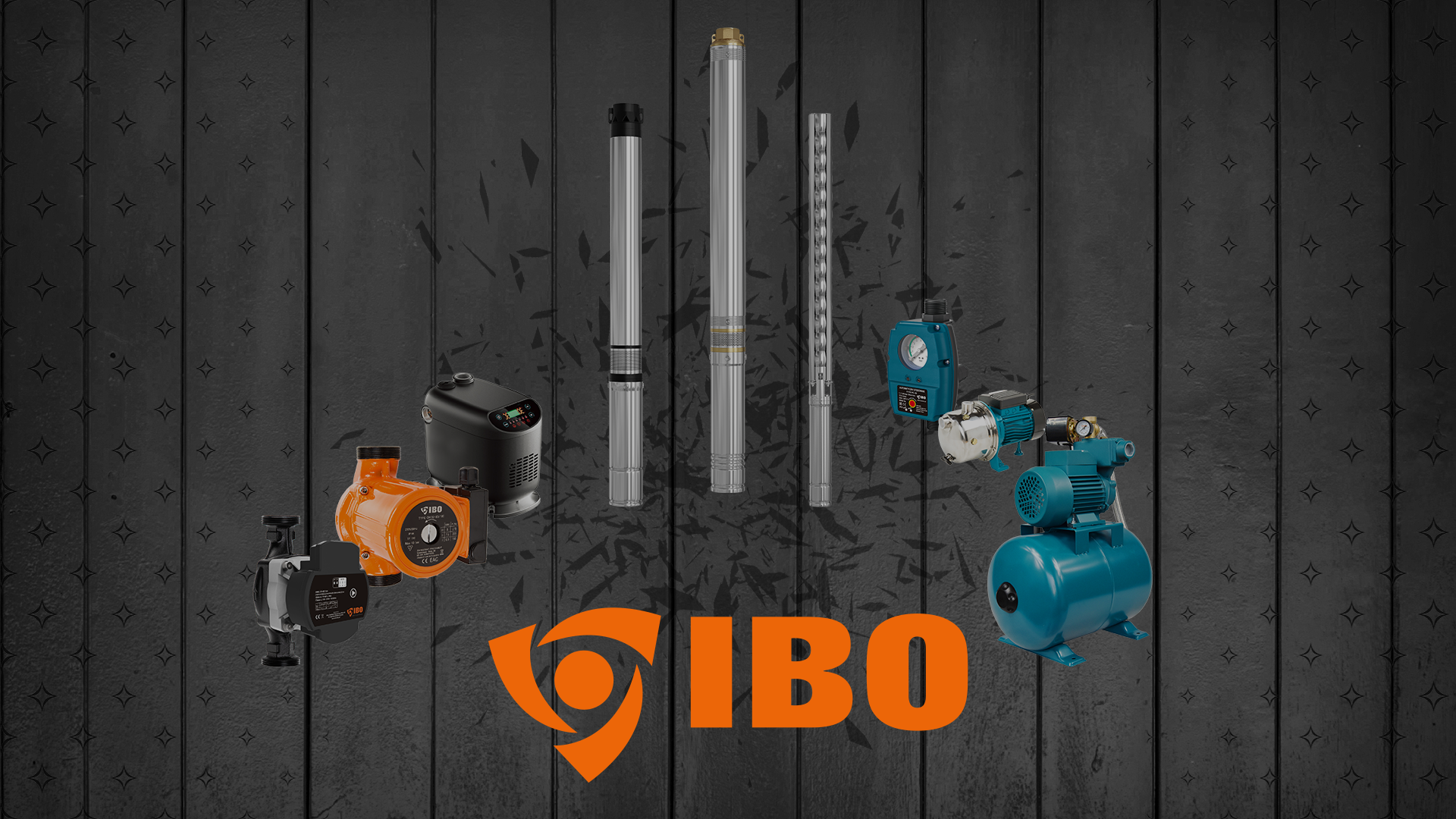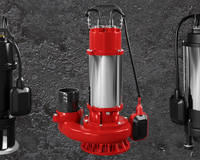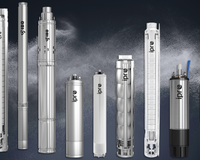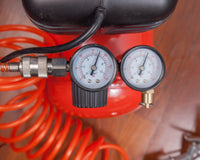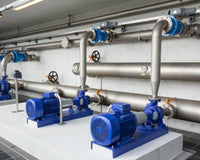Pumps are devices necessary in many water installations - from home heating systems, through dehydration, to industrial applications. In this article, we explain how the most popular types of pumps differ, such as: deep pump, septic tank pump, circulation pump, circulation pump, furnace pump, industrial pump and others. This makes it easier to choose the right device for your needs!
1. Deep pump (deep pumps, soil pump, deep well pump)
Deept pumps are intended for pumping water from high depths, for example from a deep well. They are placed under the water mirror, which prevents cavitation and increases the effectiveness of the device. They are perfect for supplying single -family houses, irrigation systems or on farms. They are characterized by high efficiency and corrosion resistance thanks to the use of durable materials.
2. Septic tank pump
The septic tank pump is used to pump the impurities from home drainage tanks. It is resistant to aggressive liquids, impurities and suspensions present in sewage. This device is often equipped with overload protection and special rotors adapted to work with dense media. This is an irreplaceable solution when regularly emptying tanks for waste.
3. Septic tank pump with a shredder (pump with a shredder, pump for dirty water with a shredder)
This is a septic tank pump version equipped with a mechanism that crushes greater impurities. Thanks to this, it effectively crushes solid elements, such as paper or organic residues, minimizing the risk of clogging wires. Ideal for work in demanding conditions, where there is a large amount of solid impurities. The pump with a shredder is also an excellent choice for households and small industrial facilities.
4. Circulation pump (CWU circulation pump)
Circulation pumps are mainly used in domestic hot water systems (CWU). They maintain a constant circulation of hot water in the installation, thanks to which access to it is immediate after unscrewing the tap. They reduce energy and water losses, which translates into lower bills and higher comfort of use. Modern models often have automatic control functions, which further increases the efficiency of the installation.
5. Circulation pump (circulation pumps, CWU circulation pump)
Circulation pumps are responsible for forcing water flow in central heating systems or DHW. Thanks to them, the heat from the boiler is evenly distributed to all radiators in the building. This is a key element of any heating installation, ensuring its performance and stability. Modern circulation pumps often offer energy -saving mode and quiet operation.
6. Pump for a vertebral well
Pumps for the spinal well are adapted to pump water from shallower intakes, such as spinal wells. Their design allows for effective work at a small depth of the water mirror, which makes them an ideal solution for single -family houses and recreational plots. They are also often used to water the garden or supply water systems with water. These models are easy to install and service.
7. Stove pump (CWU pump)
The furnace pump is nothing but a circulation pump dedicated to work in central heating installations. It provides efficient circulation of the heating factor between the stove and radiators. Thanks to it, the room temperature is even, and the boiler works with optimal performance. Modern furnace pumps are characterized by high energy efficiency and quiet operation.
8. Surface pump
Surface pumps are mounted outside the tank and suck water from shallow shots. They are great for irrigation of gardens, supplying home installations or pumping rainwater. Their advantage is easy installation and maintenance - you do not need to immerse them in water. Depending on the model, they can work with different performance and pressure, adapting to the individual needs of the user.
9. Displacement
Space pumps transport a liquid by mechanical movement of a specific volume of the medium. They are used in precise applications, such as fluid dosing in the chemical, food or pharmaceutical industries. They allow the transport of liquids of different viscosity, as well as liquids containing solid particles. They provide accurate and stable work parameters, even in changing procedural conditions.
10. Industrial pumps
Industrial pumps are efficient devices used in large production installations and industrial plants. They are characterized by high efficiency, corrosion resistance and the ability to work in difficult conditions. They support a wide range of liquids: from water, through chemicals, to aggressive and abrasive liquids. Their design allows for long, trouble -free operation with minimal maintenance.
11. Vertical pumps
Vertical pumps are distinguished by a compact construction and vertical rotor setting. Thanks to this, they take up less space, which is important in installations with limited space. They are mainly used in water supply systems, industrial installations and in pressure lifting systems. Their advantage is high performance, the ability to work with high pressure and easy service.
Summary
The choice of the right pump depends primarily on the purpose, type of pumped medium and installation conditions. Other requirements will have pumps for clean water, and others for dirty water or sewage. We hope that our guide has helped you better understand the differences between popular types of pumps. If you need help in choosing a device, contact our Dambat experts!
The most frequently asked questions (FAQ)
What pump should you choose for a deep well?
The deep pump, which works under the water mirror and is adapted to work at large depths, will work best for the deep well. It provides high efficiency and corrosion resistance, which guarantees long -term use.
What is the difference between a septic tank pump with a shredder and a regular septic tank pump?
The septic tank pump with a shredder has an additional mechanism that crushes greater solid impurities. Thanks to this, it minimizes the risk of clogging the installation, which is especially important when draining sewage containing solid bodies.
What is the circulation pump for?
The circulation pump maintains a constant circuit of hot water in the installation, which allows immediate access to hot water at collection points. This solution improves the comfort of use and reduces water consumption.
When to choose a surface pump?
Surface pumps are ideal for working with shallow water tanks, for example for watering the garden or supplying home water installations. They are easy to install and maintain, and also allow you to flexibly adapt performance to your needs.
What applications do industrial pumps have?
Industrial pumps are used in large installations, such as production plants or sewage treatment plants. Thanks to high performance and resistance to difficult working conditions, they work well when transporting various liquids, including aggressive chemicals.
What distinguishes vertical pumps?
Vertical pumps are characterized by compact construction and vertical setting of the rotor, which allows you to save space in the installation. They are efficient and often used in water pressure raising systems and in industrial circulation systems.


